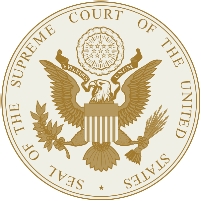If You’re Betting on Supreme Court Cases, Count the Number of Questions Asked
Monday, June 01, 2009

A new study by political scientists has confirmed the idea that in a Supreme Court case, the party that gets the most questions is most likely to lose. The idea was first introduced by Sarah Levien Shullman when she was a second-year law student at Georgetown. Chief Justice John Roberts heard about Shullman’s study while he was a federal appeals court judge. He decided to test its conclusion for himself and found that the most-asked-question “rule” predicted the loser in 24 of 28 cases, an 86% prediction rate. The new study, published in the Washington University Journal of Law and Policy, goes into further detail, examining 2,000 arguments and 200,000 questions from the judges.
The studies reveal something about the nature of questions that Supreme Court justices ask lawyers for each side. According to Adam Liptak of The New York Times, “In form, they are efforts by the justices to elicit information, clarifications and concessions from the lawyers. In reality, though, these arguments are for the most part attempts by the justices to persuade their colleagues.”
If the two sides receive the same number of questions, the likelihood of reversal is 64%, which is in line with the usual probabilities, since the court reverses more often than it affirms. But if the side seeking reversal gets 50 more questions than its adversary, the likelihood of a victory drops to 39%. And if that side manages to get the maximum number of extra questions in the study, which was 94, the likelihood of winning drops to 18%.
-Angela Chen
When the Justices Ask Questions, Be Prepared to Lose the Case (by Adam Liptak, New York Times)
Inquriing Minds Want to Know: Do Justices Tip Their Hands with Questions at Oral Arguement in the US Supreme Court? (by Johnson, Black, Goldman and Truel, Washington University Journal of Law & Policy)
- Top Stories
- Unusual News
- Where is the Money Going?
- Controversies
- U.S. and the World
- Appointments and Resignations
- Latest News
- Trump Orders ICE and Border Patrol to Kill More Protestors
- Trump Renames National Football League National Trump League
- Trump to Stop Deportations If…
- Trump Denounces World Series
- What If China Invaded the United States?






Comments